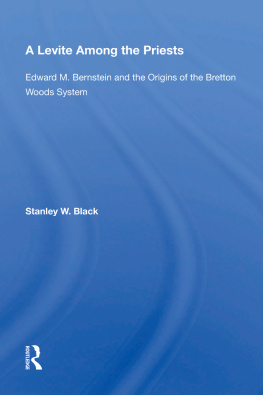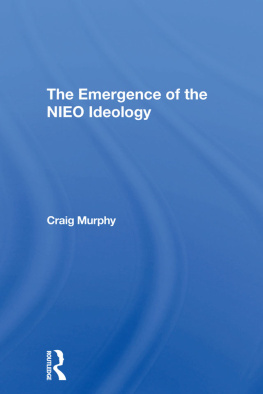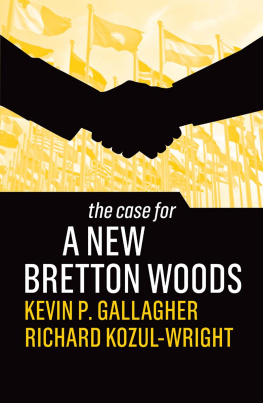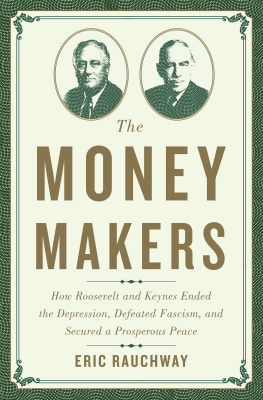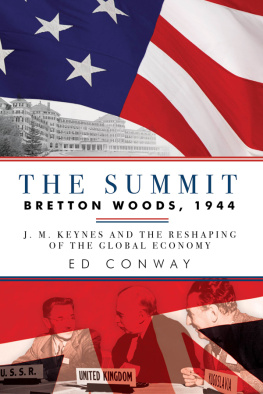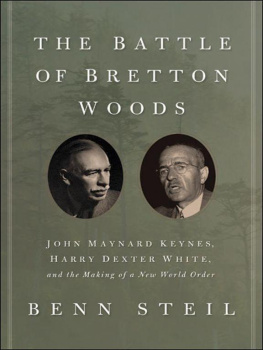Preface
This book offers an unconventional interpretation of the birth of the postwar international economic order. At least, it was unconventional to me until I came upon some archival material well over a decade ago that generated the research path that led me to write this book. Like many others, I had long assumed that international development goals and North-South relations played little role in the creation of the Bretton Woods system. After many years of digging through archives and other sources, I have become convinced that they were much more important to the origins of that system than is usually acknowledged. These are forgotten foundations of Bretton Woods and they are not just of historical interest. They deserve to be remembered at a time that there is much discussion about how to reconcile the existing liberal international economic order with the development aspirations of emerging Southern powers. The Bretton Woods architects addressed this issue squarely and creatively at the creation, and they included representatives from many of the key emerging economic powers of today such as Brazil, China, India, and Mexico.
Many people have helped me in this project. I am very grateful to various archivists working in the institutions mentioned in the reference list who shared their wisdom and provided invaluable assistance. I have also been lucky to work with a remarkable group of students who provided valuable research assistance and insights: Asim Ali, Geoff Cameron, Taarini Chopra, Judit Fabian, Athanasia Limperatos, Masaya Llavaneras-Blanco, Troy Lundblad, Ian Muller, Stefano Pagliari, Antulio Rosales, Anastasia Ufimtseva, Vernica Rubio Vega, and J. Ricardo Tranjan. Ricardo deserves special recognition for his valiant efforts on a trip to locate Paraguayan archival material that appears to have been lost to the historical record. Thanks, too, to staff at the Banco Central del Paraguay for their assistance with his efforts.
Thanks to many others who provided helpful commentary, reactions, sources, and advice on various aspects of the argument. They include Manmohan Aggarwal, Jacquie Best, James Boughton, Gerry Boychuk, Benedicte Bull, Tom Callaghy, Greg Chin, Andy Cooper, Bob Cox, Roy Culpepper, Ed Dosman, Alan Dye, Michael Edelstein, Ted Fertik, Ed Friedman, Kevin Gallagher, Patti Goff, Mui Pong Goh, Derek Hall, Jason Hecht, Gerry Helleiner, Kathy Hochstetler, Harold James, Miles Kahler, Robert Keohane, Jonathan Kirshner, John Kleeberg, Akinoba Kuroda, Kathryn Lavelle, Kari Levitt, Brad Lewis, Odette Lineau, Charles Lipson, Perry Mehrling, Bessma Momani, James Morrison, Ananya Mukherjee-Reed, Craig Murphy, John Odell, Paul Poast, Tony Porter, Laura Randall, Eric Raunchway, Emily Rosenberg, John Sanbrailo, Kurt Schuler, James Scott, Irvine Stone, Andrew Thompson, Gail Triner, Ryan Touhey, Richard von Glahn, Hongying Wang, David Weiman, Rorden Wilkinson, Ngaire Woods, as well as many other participants in seminars where I presented aspects of this work at Columbia University, Cornell University, Harvard University, the History of Economics Society, McMaster University, Oxford University, Princeton University, the Rockefeller Foundations Bellagio Centre, Sciences Po, the University of Chicago (the PIPES seminar), the University of Ottawa, the University of Southern California, the University of Tokyo, the University of Warwick, and the University of Waterloo. To any people I have overlooked, please accept both my apologies and my thanks.
I am also particularly grateful to Roger Haydon for all his insights and cheerful encouragement as well as to two anonymous reviewers of this manuscript for their very helpful comments and suggestions. Gavin Lewis and Susan Specter also provided extremely useful editorial advice. Many thanks, too, to the Social Sciences and Humanities Research Council of Canada, the Canada Research Chairs Program, and the Trudeau Foundation for helping to fund the research underlying this book. And finally this book is dedicated to the three people who have made the most important contributions to it: Jennifer, Zo, and Nels. Jennifer has listened and reacted to my ideas about this history (and much else) for a very long time; Zo and Nels have spent almost their whole lives with this project and sometimes wondered why someone could possibly be so interested in a faraway forest called Bretton Woods. Thanks to each of them for their wonderful patience, intelligence, humor, support, and love of life, which have been constant sources of inspiration.


